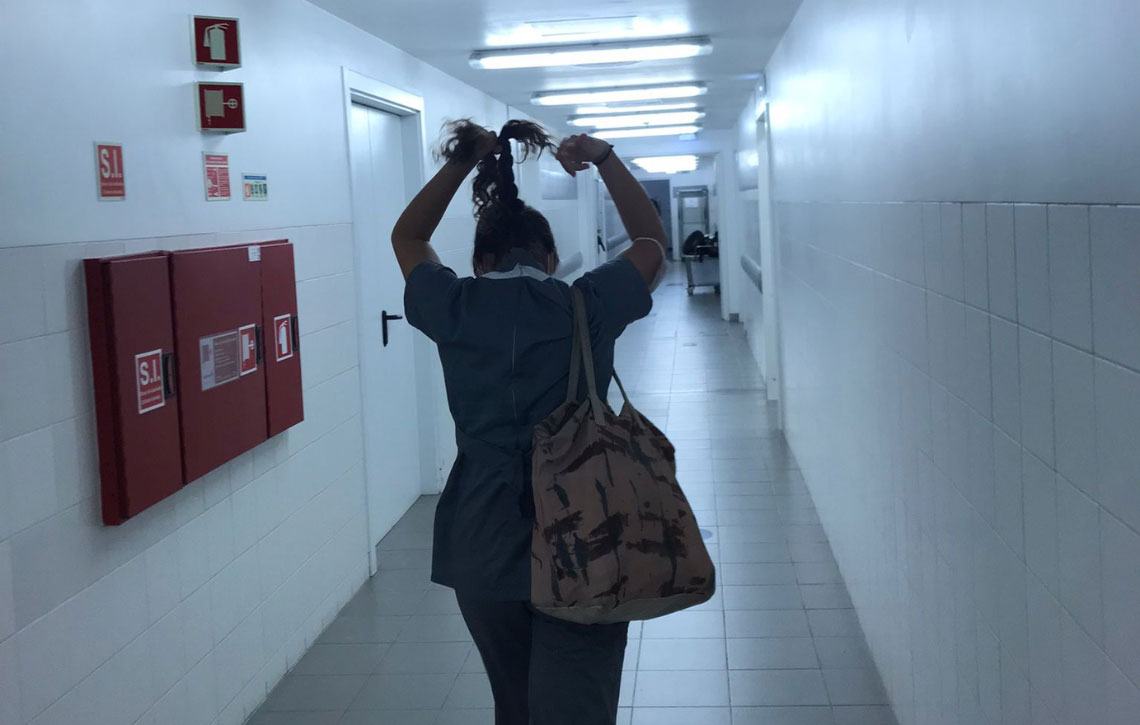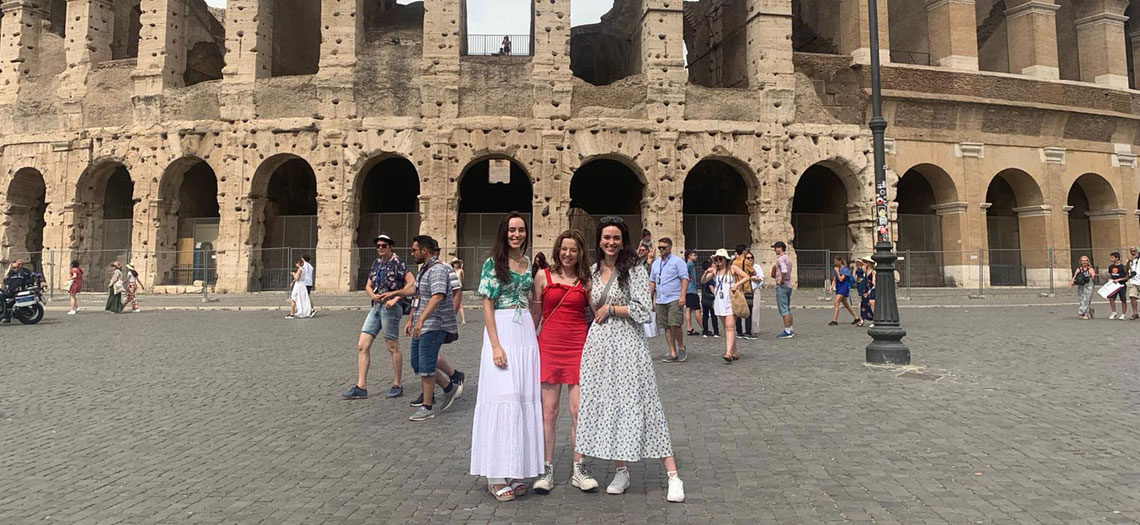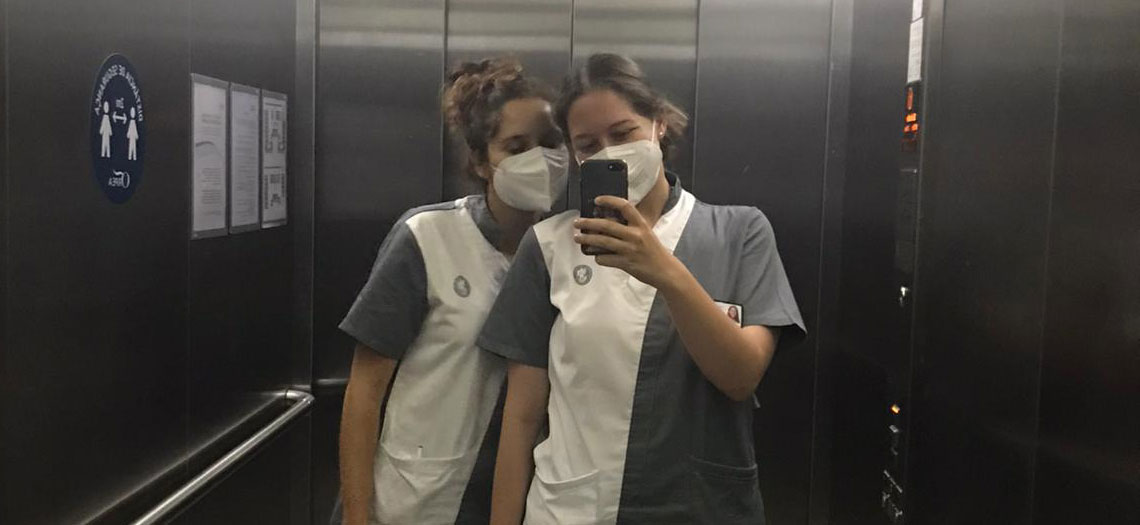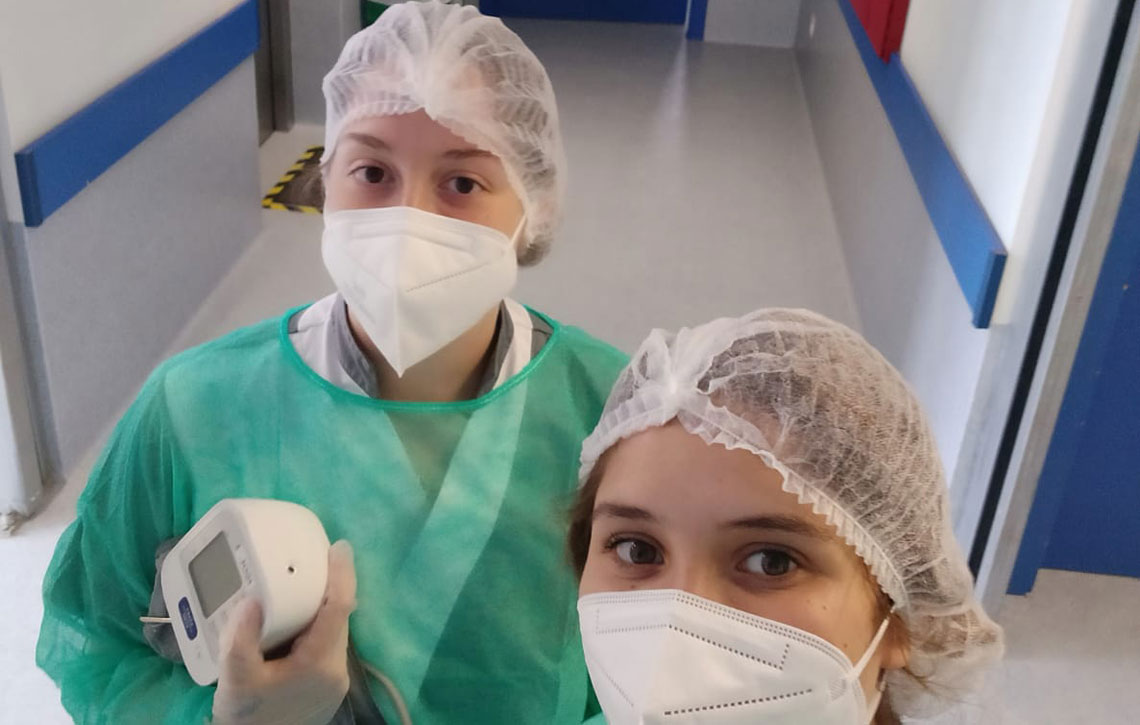Much has been written about travel and the experience staff of leaving home to make a living. However, the pandemic has forced the delay and cancellation of these academic trips abroad. It has been two years of hiatus in the exchanges for future nurses who have seen how the health regulations of other countries prevented them from setting foot in the hospitals where the profession is really learned.
The international experience mentioned in the School of Nursing of the University of Navarra, is nothing more than offering the student of Degree an in situ learning both in theoretical classes and in the internship, where they get to know closely how professionals from other countries practice. This allows them to compare healthcare systems, network with other colleagues and even learn another language.
This is the case of five students who this academic year 2021/2022 have been able to inaugurate this academic return to pre-pandemic times, carrying out clinical internship exchanges at Campus Biomédico di Roma (Italy) and at the Nossa Senhora da Arrábida Hospital in Azeitão (Portugal). Amaya, Covadonga, Lucía, Sara and Teresa knew that if you want something, it costs you something. From the beginning, it was a whole degree program of obstacles to overcome in the midst of exams: "I valued very much with my parents the incredible character and experience that this internship would bring to my curriculum, knowledge and experience. In spite of all the inconveniences that have arisen in these last three months - with the documentation, going against the clock, exams, vaccinations - it has been worth it," says Covadonga Franco, who is currently in Italy. Her colleague, Amaya Sagasti, was not initially motivated by the idea: "I didn't really feel like it because I had a lot of plans for this summer. I was thinking about it and the more I thought about it, the more I wanted to leave. The idea of living in Rome for two months was very tempting".
Although living in another country can be idyllic, when trying to understand what it is like to be away from the family nest, one finds surprises, such as the fact that the healthcare center is not as close as it seems: "Our hospital is in Azeitão, a small town two hours from Lisbon, where we have settled. Every day we spend four hours traveling there and back, and we have to take four means of transport," adds Sara Velasco. Her traveling companion, Teresa Pérez, says that "the adaptation to a new city has been very good and the hospital's staff has helped us a lot. Both the patients and their families have been very understanding with us". With a little financial aid, everything is easier.
And what about language? Despite the language barrier, I was able to do my best to establish good nurse-patient relationships," says Teresa, because, although Portuguese or Italian are somewhat similar to Spanish , "I was able to see how, despite the limitation, one can make oneself understood and provide good care," says Sara. "I came to Rome without knowing any Italian and the truth is that it doesn't become a barrier for me," says Amaya. "Italians here are very open people. group None of the three of us have ever felt alone," adds Lucía Cáceres. "Being in a university environment has helped us even more because, as soon as we arrived, we joined a group of friends from the university with whom we have been going out and getting to know Rome when we were not in the hospital. And Covadonga concludes: "They love to talk to us and tell us what they know about Spain. In short: ham, paella and bullfighting. Centuries of existence summarized in three classics.




